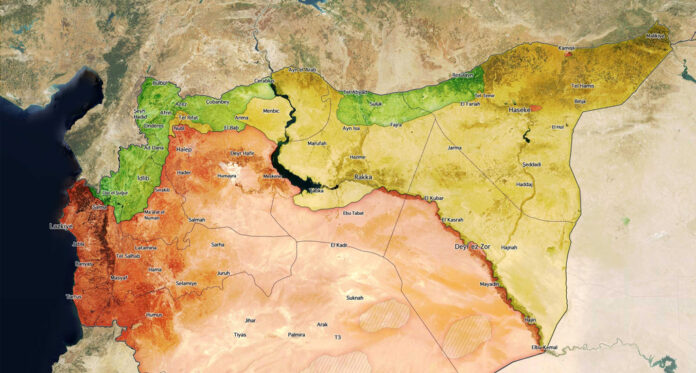Authors: Murat Aslan, Bilgehan Öztürk, Rıfat Öncel, Ümit Tetik, Ömer Özkizilcik, Sibel Düz, and Nur Günay
Affiliation: SETA
Organization/Publisher: SETA
Date/Place: 2020, Istanbul. Turkey
Type of Literature: Report
Number of Pages: 69
Link: https://setav.org/en/assets/uploads/2020/01/R151En.pdf
Keywords: Turkish Security, Turkish Geopolitical Risks, PKK, PYD
Brief:
This report was commissioned to anticipate geopolitical risks that afflict Turkey`s national security in 2020. By selecting significant conflict areas—from the conflict in Syria to the dispute in Eastern Mediterranean, and from fighting PKK to the fluctuating relationships of Turkey with the US and Russia – the report concludes that the security risks are likely to persist in the coming term. While a multitude of political, economic and military considerations influenced the Turkish security in 2019, 2020 will be a year of escalating tensions between Turkey and terrorist organizations in east-southern borders and the Gas Forum countries (EMGF) in the eastern region of the Mediterranean basin. Despite the capacity and advanced military technology that Turkey used to contain the risks emanating from its borders with Syria and Iraq, as well as the Turkish naval power deployed in the Mediterranean, the different stances of Russia and the US in both regions have complicated Turkey’s national security concerns. While the convergent agreement upon fighting DAESH in Syria and Iraq was the main concern for Turkey and the US, Turkey disagreed with the US over America’s support of PYD and Gas forum countries. This disagreement is likely to dominate the relationships between the two countries. Despite the convergence between Russia and Turkey upon several issues including security cooperation, economy, tourism, etc. the main divergence remains over Syria. If the previous agreements between the two countries over Syria reach any deadlock, the situation is likely to lead to a face-off.
By: Imad Atoui, CIGA Research Associate




